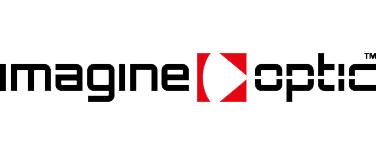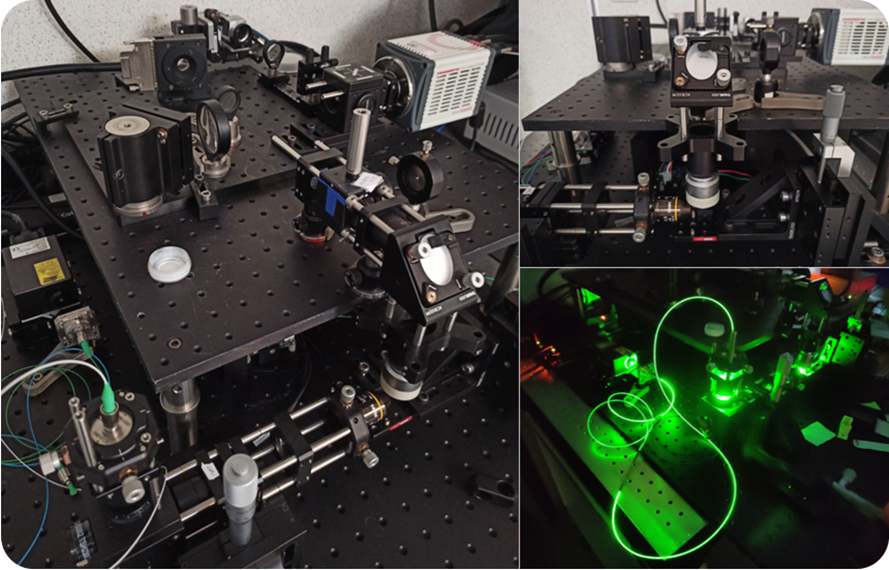A custom-built light-sheet microscope containing our newly developed fast adaptive optics approach, is now ready for systematic testing with various biological samples.
Light-sheet fluorescence microscopy proved many advantages when imaging biological samples, providing high speed, low phototoxicity, large field of view, 3D capability together with optical sectioning. However, and in particular when imaging deep, sample-induced optical aberrations usually limit the image quality. Adaptive optics (AO) can compensate for such aberrations, but currently at the expense of either slow speed or complicated setups, which are not yet ready to be used routinely.
With the aim to provide a systematic benefit of using adaptive optics in light-sheet microscopy, Imagine Optic, together with a team of researchers from Ecole Supérieure de Physique et de Chimie Industrielle (ESPCI, France), developed a prototype of adaptive optics light-sheet fluorescence microscope. To compensate for sample-induced aberrations, this microscope contains a deformable mirror on the emission pathway and it can benefit from both sensorless and direct wavefront sensing-based adaptive optics approaches. The latter technology is based on our newly developed wavefront sensing approach (full description here) which enables fast adaptive optics correction – typically within 1 to 3 seconds – without the need for a guide star in the sample.
This new aberration detection and correction approach already demonstrated a significant improvement of the image quality in neuroscience samples (see an example here and in the previously mentioned publication). With this microscope setup we are now able to demonstrate and quantify the gain brought by adaptive optics in light-sheet microscopy for various biological samples. In particular it provides significant signal increase when imaging small structures close to the diffraction limit, especially when imaging deep, and/or when small signals need to be observed with a decent signal-to-noise ratio. Everybody who is interested in discussing AO for light-sheet and/or testing their samples are welcome to contact us.
These results have been achieved in the frame of the INOVAO project (funding Agence Nationale de la Recherche, ANR-18-CE19-0002).

